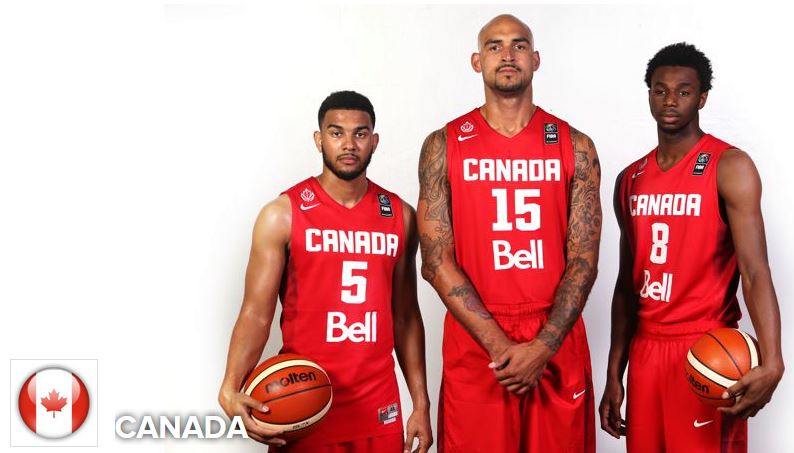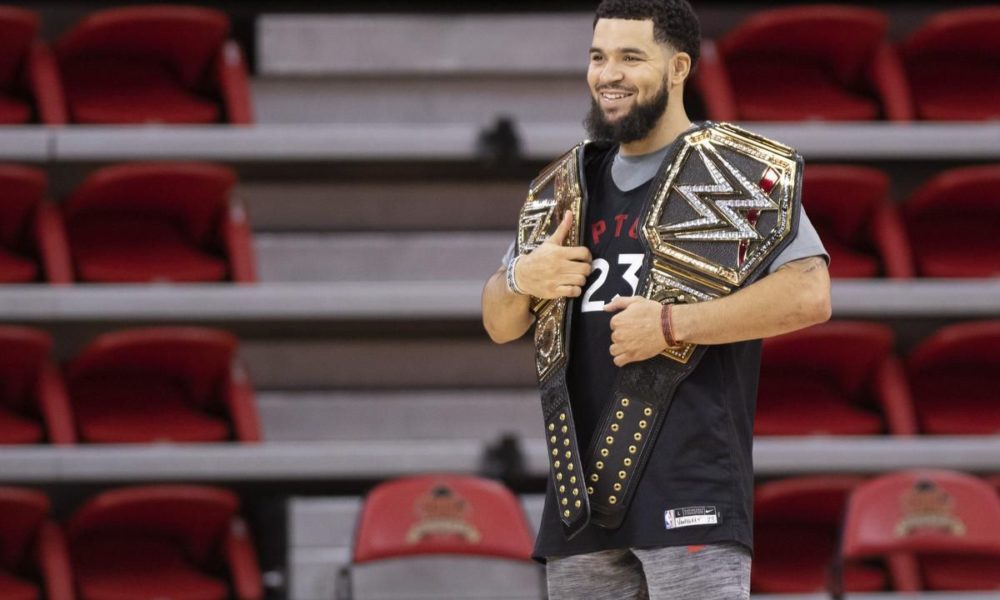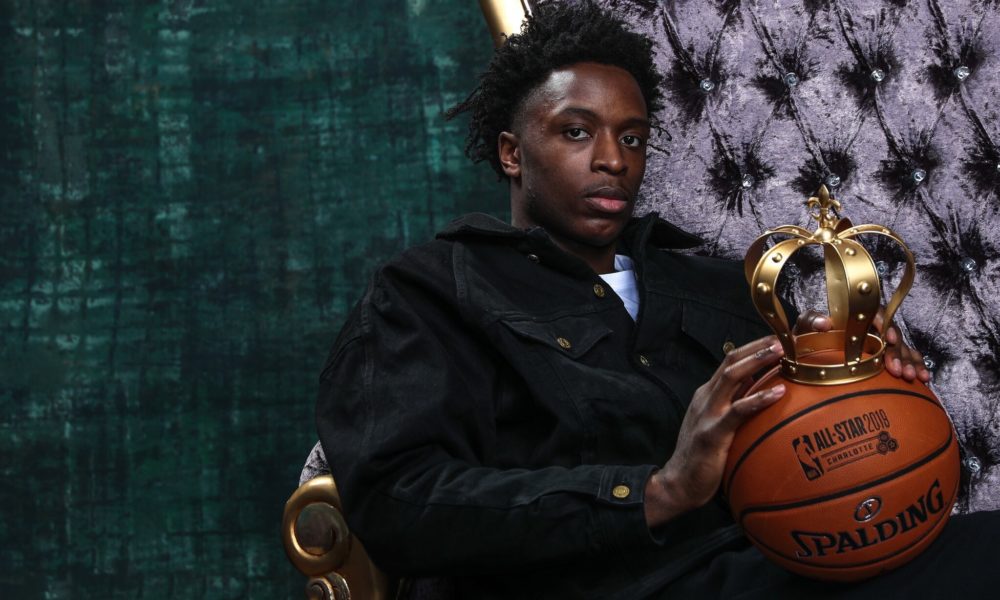The end result of the FIBA 2019 World Cup was not the one that was expected when the tournament began. Team Spain, with four current NBA players on the roster, beat team Argentina, whose only NBA talent was 39 year-old Luis Scola, to win the championship. Team USA, composed entirely of NBA talent, fell to seventh place, while Tomas Satoransky and the Czech Republic national team took home fifth place. Perhaps the most surprising turn of events was that Canada, home of the current NBA Champion Toronto Raptors, were unable to move past the classification round and ultimately placed 21st out of 32 teams. A team captained by 2014 NBA champion, Cory Joseph, somehow left the tournament with their second worst placement in team history.
The feedback from Team Canada’s performance was less than ideal, but rightfully placed. In June, Canada became the only country outside of the United States to have six players drafted into the NBA, including third overall pick, R.J. Barrett. Their coach, Toronto Raptors’ head coach, Nick Nurse, had just coached his team to a championship in his first year. A top ten seeding should have been guaranteed, but instead they crumbled. Injuries and withdrawals softened the blow, but the perception was still the same: Canada Basketball didn’t deliver.
Not in FIBA, anyway.
In 2017, after increased frustration with the direction of the National Basketball League of Canada (NBL), Richard Petko, owner of the Niagara River Lions basketball club, announced the establishment of the Canadian Elite Basketball League, or CEBL for short. The league would feature six teams; the Fraser Valley Bandits, the Hamilton Honey Badgers, the Edmonton Stingers, the Saskatchewan Rattlers, the Guelph Nighthawks, and the Niagara River Lions, formerly of the NBL, and would be overseen by former CFL player, Mike Moreale. The CEBL’s six teams would each feature rosters with at least 8 Canadian players, and would be played under FIBA rules. A shorter season (60 games in total) and championship weekend instead of playoffs would allow players to continue to develop and play in other leagues at the conclusion of the CEBL season. The league would spotlight players from the NBA G-League, the Canadian National team, and international teams, as well as college and university athletes from Canada and the NCAA. The pay scale and atmosphere would be similar to the G-League, with some players earning more per-game than they would in the G-League. Their goal, they stated, was to showcase Canadian basketball talent while allowing players to further their basketball careers, while representing Canadian communities.
In every possible way, the league’s inaugural season was a resounding success. So successful that New Era agreed to a five-year deal to provide the league’s apparel, and Spalding to become the official ball of the CEBL for at least three years. It didn’t take long for word of the CEBL to spread, drawing Canadian stars like Shai Gilgeous-Alexander to attend games, and CBC to broadcast all remaining games from June onward. The experience was astounding, with games featuring local entertainment, food, and music; furthermore, the talent was undeniable.
Over the course of the summer, I had the opportunity to attend CEBL practices and games. The league may be new, but it did in its first year what FIBA was unable to do this summer: showcase Canadian talent. Canadian basketball isn’t broken; it is alive and well, and it’s right under our noses.
Duane Notice: When I first started this project, it was because I could not fathom a Canadian National team without Duane Notice on it. At age 15, Notice averaged 10 points and nearly 5 assists in the Under 16 FIBA Americas tournament, earning Team Canada both a bronze medal and a qualifying position in the Under 17 FIBA World Cup. While his statistics decreased slightly from the previous tournament, Notice helped his team to earn another bronze medal in the 2010 Under-17 World Cup, falling to the gold medal American team that included Andre Drummond, Quinn Cook, and tournament MVP and 2012 3rd overall pick, Bradley Beal. The 2013 Under-19 FIBA World Cup would have Notice and his 10 points, 11 rebounds defeat the Korean national team and advance to the quarter-finals. 2012 would bring the Canadian Junior Men’s Team their third consecutive bronze medal, again with Notice at the helm.
Remember when PJ Tucker got traded to Toronto and played his first game on basically zero sleep? Duane did that too. Rather than return home from NBA Summer League in Las Vegas, he headed straight to Fraser Valley, where in his Honey Badgers debut, Notice recorded a team-best 17 points, along with 3 rebounds, two assists, and two steals. Notice would leave the Honey Badgers before the championship in order to participate in the Team Canada training camp, and without him, Hamilton would fall to Saskatchewan in the championship game. While the CEBL allows players to pursue other opportunities, their biggest mistake was to let him leave, and based on his FIBA accolades, Team Canada’s biggest mistake was to cut him.
Notice will re-join the Toronto Raptors G-League affiliate, Raptors 905 for his second season, where he averaged nearly 10 points and 3 assists in his G-League debut.
MiKyle McIntosh: MiKyle McIntosh was a crowd favourite for the Raptors 905 during the 2018-2019 season, scoring 30 points in a single game in February, and averaging nearly 13 points and 6 rebounds per game in the playoffs. His CEBL stats were nearly identical to his G-League stats, but they included one ejection in a game against the Edmonton Stingers. After being forced to redshirt his freshman year at Illinois State, he was named Most Improved Player as a sophomore after a 20-point win over Landry Shamet and the Wichita State Shockers. MiKyle would transfer to the University of Oregon in his senior year and again post a 12 and 6 stat line. McIntosh is currently playing for BC Oostende in Belgium, putting up 15 points per game.
Murphy Burnatowski: When Kelly Olynyk was announced to miss the remainder of the FIBA tournament, my first thought for a replacement was Hamilton Honey Badgers forward, Murphy Burnatowski. Transferring from the University of Maine to Colgate University after his sophomore season, Murphy ended his collegiate athletics career after being undrafted in the 2014 NBA draft. Playing in Switzerland, Burnatowski regularly scored 20 or more points per game, along with 7 rebounds. At 6’8 and 229 lbs, he is a surprisingly quick and vertical player, yet he does not commit as many fouls as most of his fellow big men. The Kitchener native has played in the Czech Republic, Poland, Cyprus, Newfoundland, and Hamilton. He will return to Switzerland for the 2019-2020 season with Fribourg Olympic.
Keanau Post: Keanau Post was always the first one in the gym and the last one out for the Hamilton Honey Badgers. It may not reflect in his CEBL stat line, but his dedication to improvement is admirable. After going undrafted in the 2015 NBA draft, Post signed with the Raptors 905 for their inaugural season. Currently, he joins Polpharma Starogard Gdanski of the Polish Basketball League.
Michael Linklater: Representation in sports matters, and there is no one more admirable for Indigenous Canadians than Michael Linklater. At 5’10, Linklater was the second smallest player on the court in the entire CEBL, but that didn’t stop him from leading the Saskatchewan Rattlers to the first CEBL championship at 37 years of age, in the last year of his professional career. After losing both grandparents and his brother to alcoholism, Linklater vowed to himself from a young age to abstain from drugs and alcohol. Now, through clinics and camps with Prime Basketball Development, he encourages Indigenous youth to live a sober lifestyle. Linklater also created the campaign Boys With Braids, promoting and honouring the Indigenous cultural tradition of boys wearing braids. In a country that turns a blind eye to Indigenous history and communities, Michael Linklater is an integral part of remembering everything they have gone through and just how much needs to be done to preserve and honour Indigenous heritage.
Negus Webster-Chan: Negus won the G-League championship with the Raptors 905 and the CEBL championship with the Saskatchewan Rattlers. He may not put up the most points per game, but his catch and shoot ability, paired with his floor spacing, make him a threat to opponents. The Scarborough guard has a lot to prove, but if given the opportunity, he could develop into a solid role player.
Olu Famutimi: Coming out of high school, Olu Famutimi was ranked the 7th best player by ESPN. He was the first Canadian ever selected for the McDonald’s All American Game. He tied Kobe Bryant’s record with 40 points scored in the ABCD Adidas All-American Camp All-Star Game, and was expected to go straight from high school to the NBA. But in his senior year, it all fell apart. Famutimi suffered a torn ACL, and it would be nine months before he could play basketball again, and the opportunity to go straight to the league would instead turn into multiple offers from high ranked universities. Ultimately choosing to play for the University of Arkansas, Olu would declare for the draft after his sophomore season, but would not be drafted. In 2005 he signed with the Philadelphia 76ers and played in four preseason games before being waived. Since then he has played in France, Germany, Ukraine, Halifax, and Guelph, outside of representing Canada on four separate occasions, and placing 4th in the 2009 FIBA Americas Championship. With the Nighthawks, Famutimi finished 4th in 3-pointers made, with 69.
It’s worth noting that although the Guelph Nighthawks would not be participating in the CEBL championship weekend, every single player on the team still showed up to their final practice after elimination. This speaks to the dedication of the players and to the level of respect they had for head coach (and Raptors 905 assistant coach), Charles Kissi. Playing in Canada was not a chore, it was a privilege, and one the Nighthawks and the five other teams league-wide did not take lightly. Richard Petko and Mike Moreale saw an opportunity to showcase Canadian basketball on more than a semi-annual national stage. They allowed their players to develop, to have fun, and to continue to pursue a professional basketball career, and they did it in their own backyard. No longer would Canadian basketball fans have to travel to the United States, just to possibly catch a glimpse of a Canadian player in the NBA. Instead, they could visit Hamilton, or Guelph, or Fraser Valley, or St. Catharines, or Edmonton, or Saskatchewan. Canadian children could see that there is a possibility for a career in professional basketball without going to the NBA. Moreale and Petko confirmed that Canada is brimming with talent; you just have to look a little harder.



